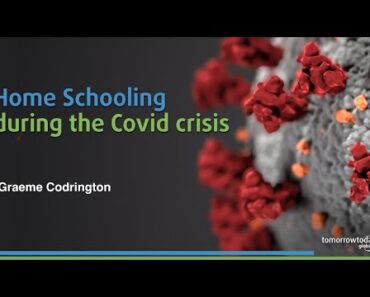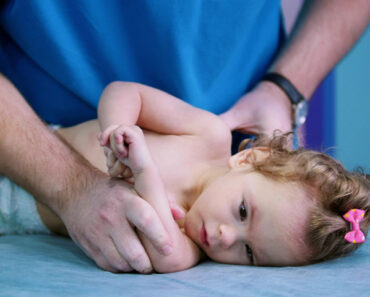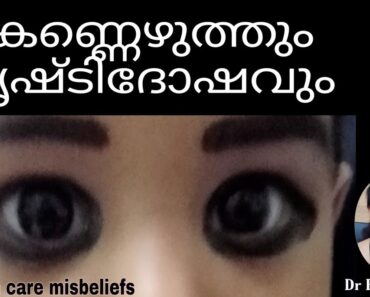Tooth decay is a common infectious disease of early childhood since a baby’s teeth are susceptible to decay as soon as teething begins (1). Baby bottle tooth decay or nursing caries could occur due to poor dental hygiene and prolonged use of the bottle for consuming liquids with natural or added sugar, such as milk or juices (2).
Nursing caries in infancy could damage deciduous teeth (milk teeth) and affect the eruption of permanent teeth. A dental checkup within six months of the first tooth’s eruption is advisable as a preventive measure.
Read on to learn what causes baby bottle tooth decay, signs of tooth decay, potential complications, and effective ways to prevent it.
What Are The Causes Of Baby Bottle Tooth Decay?
Baby bottle tooth decay occurs when the acid-producing bacteria inside the mouth damage the tooth enamel. The following are some of the most common causes of baby bottle tooth decay (3).
- Parents, siblings, or caregivers may transmit acid-producing bacteria to the baby’s mouth by sharing spoons, cups, and other utensils.
- Putting the baby to the bed with a bottle or using a bottle as a pacifier causes prolonged dental exposure to liquids, such as milk. A baby who sleeps with a milk bottle could have milk pool up inside their mouth.
- The acid-producing bacteria feed on the natural sugars present in milk, including breast milk. The bacteria produce acid as a product of sugar breakdown. The acid damages the enamel (outer part of the teeth), leading to baby bottle tooth decay.
- Formula milk, breast milk, and juices are all sources of natural and added sugars. Cow milk and solid food can be additional sources for older babies and toddlers.
- Poor dental hygiene, such as lack of brushing, could cause the bacteria to thrive inside the mouth and increase the risk of nursing caries. Inadequate dental exposure to fluoride may further increase the risk since fluoride helps harden the tooth enamel.
The enamel of a baby’s tooth is soft and thin, making it prone to damage from acid-producing bacteria.
What Are The Signs Of Baby Bottle Tooth Decay?
The following are the various signs that could indicate baby bottle tooth decay (4).
- Dull-colored white spots or lines on the tooth surface indicate enamel erosion. These are the initial signs of tooth decay and could be hard to spot for parents.
- Yellow-, brown-, or black-colored bands or lines on the tooth surface close to the gums indicate the progression of decay.
- Brownish-black pits or stumps are indicative of advanced tooth decay.
Babies with severe nursing caries may also experience pain in the gums and discomfort while feeding or chewing.
Potential Complications Of Baby Bottle Tooth Decay
If baby bottle tooth decay is left unattended, it may lead to the following complications (5) (6).
- Chronic pain that interferes with feeding and chewing. It may also affect the baby’s nutrition.
- Damage to permanent teeth that lie below the gums. If permanent teeth do erupt, they might be misaligned.
- Decayed or misaligned permanent teeth may alter the alignment of the lower jaw, thus affecting the shape of the face.
- Dental problems may interfere with the baby’s speech development and may cause delayed achievement of language skills.
- Severe untreated nursing caries may lead to serious dental problems, such as pulpitis, where the bacteria invade the pulp, the innermost part of a tooth.
How To Prevent Baby Bottle Tooth Decay?
Baby bottle tooth decay can be prevented by adopting oral hygiene measures and right bottle-feeding practices (1) (5).
- Never put your baby to bed at night or for naps with a bottle of milk or any other beverage, such as juice.
- Avoid using bottles as pacifiers to soothe a fussy baby. Instead, try techniques such as swaddling, rocking, or playing soft music (7). You may also use a pacifier to soothe the baby. Never dip a pacifier in honey or sugar syrup. Babies under 12 months should not be given honey since it increases the risk of infant botulism (8).
- Avoid serving sugary liquids, such as fruit juices and sugar water, to babies and toddlers. Babies under 12 months should not consume fruit juice. Toddlers between 12 and 36 months can consume no more than four ounces (120ml) of fruit juice per day (9).
- Serve small quantities of sweet and sticky foods, such as candy, gummies, and cookies, occasionally. These foods usually increase the risk of dental caries.
- Train your baby to use a sippy cup or cup since it does not cause the accumulation of liquids in the baby’s mouth. The American Academy of Pediatrics recommends babies completely transition from bottles to cups between 12 and 24 months (10).
- Discourage your baby and toddler from playing or walking with a bottle of milk in their mouth. If they need a bottle or sippy cup for long periods, fill it with water instead.
- Use clean gauze or soft cloth to remove food pieces from the baby’s mouth. Do not use toothpicks. Use the cloth to clean the baby’s gums until the first tooth emerges.
- Once the first tooth emerges, gently brush the gums and tooth with a soft baby toothbrush and a smear or rice-sized amount of fluoridated toothpaste. You may do it once a day before bedtime.
- Brush the teeth for two minutes twice a day for babies between the ages of 12 and 36 months. Use a soft baby or toddler toothbrush and a pea-sized quantity of fluoridated toothpaste.
- The best time to brush teeth is after breakfast and before bedtime. You may also brush the teeth after the toddler eats something sugary.
- Choose fluoridated toothpaste for brushing teeth (11). You may pick variants that are suited for babies and toddlers.
- Use fluoridated water to prepare formula and other weaning foods. Your baby may also get fluoride from foods and beverages. Supplementation of fluoride in babies and toddlers is usually not necessary. Consult a pediatrician or dentist to know the best sources of fluoride for your baby.
- Schedule a dental checkup once your baby’s first tooth emerges. A dentist can spot any early signs of tooth decay.
- Once your toddler is older than 24 months, your child’s dentist may recommend flossing. You can speak to your dentist to find out the best dental floss to clean between the toddler’s teeth (12).
Baby bottle tooth decay often arises due to incorrect use of the bottle. Not letting your baby sleep with a bottle and observing good oral health habits from an early age can help avoid the condition. Once the baby gets their first tooth, schedule a preventive dental checkup. A pediatric dentist can evaluate and determine potential problems with your baby’s teeth and suggest early treatment and prevention strategies.

































